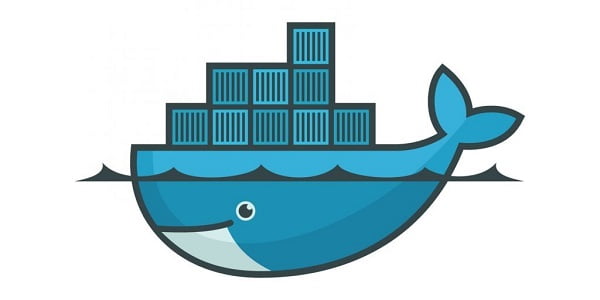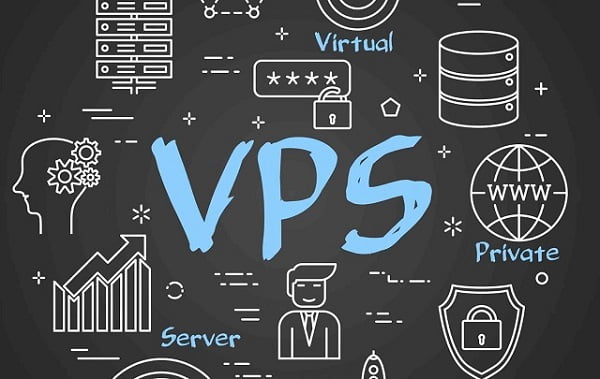Docker is a tool that is gradually gaining popularity in the field of web design and information technology, the term Docker is being used more and more. So what is Docker?
Today, Eye of the storm will explain to you about Docker. Also analyze working system principles and related concepts to give you insight into growing your business.
What is Docker?
Docker is a packaging tool (Container) operated by a virtualized operating system, the purpose is used to package and run software on the machine.
These Containers are separate from each other and "bundle" its own applications, data, libraries, and directory organization. These applications or data are closely linked together through a dedicated channel.
With the support of this platform, the developer needs to Deploy up Server Just Run the Container created by Docker, and the Application will launch immediately. Simplicity, speed and ease of use are quite prominent advantages that Docker brings.

Why use Docker? What is the difference between VPS and Docker?
After understanding the concept What is Docker? Then you need to know more super useful uses from them.
Setting up and Deploy Application on one or more Servers is very difficult from having to install the tools and environments needed for the Application to running the application, not to mention the heterogeneity between environments on many different Servers.
That's why Docker was born to solve this problem.
What is the difference between VPS (virtual server) and Docker?
The tool helps you create a virtualized environment to contain software such as programs, files, images...
As for virtual servers acting as a physical server, they contain aggregates of folders, data, libraries up to tens of GBs.

As for Docker, Containers organize data into separate packages, creating a new model of storing and processing information.
What are the benefits of using Docker?
Extremely short 'Start' and 'Stop' time: Unlike virtual machines, Docker conducts 'Start' and 'Stop' in a very short time, only a few seconds..
Containers are not only easy to manipulate, but also pack data, making information processing and storage much lighter. Docker can also run Software software so they don't cause much trouble.
The appearance of this utility tool, supporting tasks such as Developing, Testing, Coding becomes much easier and faster.
The internal software environments that are based on the Docker engine will be easier to exchange and transfer from one person to another without having to worry about internal configuration changes. Technically this is a term called Provisioning.
Versatile on many environments, compatible with Develop platforms, so Coding will become very convenient.

Some related concepts
It is also very beneficial to delve deeper into Docker and you need to have a deeper understanding of its related concepts in order to use the tool competently.
Let's Eye of the storm Let's take a look at the concepts related to Docker:
- Docker Client: is a tool that helps users communicate with Docker hosts.
- Docker Daemon: listen to requests from Docker Client to manage objects such as Containers, Image, Network and Volumes through REST API. Docker Daemons also communicate with each other to manage Docker Services.
- Docker Volumes: is the piece of data created when the Container is initialized.
- Docker Hub: is a “Github For Docker Images”. On DockerHub there are thousands of Public Images created by the community allowing you to easily find the images you need. And just Pull and use with some Config you want.
- Docker Engine: is the main component of Docker, as a tool for packaging applications
- Images: The term refers to the templates used in creating Containers.
- Container: is an Instance of an Image. You can Create, Start, Stop, Move or Delete Container based on Docker API or Docker CLI.
How do systems using Docker work by process?
After learn What is Docker? and know how it works. This foundation system is done in steps: Build, Push, Pull and Run. Specifically:
Build: This step starts with creating a Dockerfile, inside the Dockerfile is the Code section.
This file is built on a computer that has Docker Engine installed. After the build is complete, you will own a Container containing the necessary applications and libraries.
Push: When creating a successful Container, you just need to push it to the cloud and then store it in cloud storage.
Pull, Run: This step will be performed when another computer needs to use the Container. To use it, you need to Pull the Container to your machine (the machine has Docker Engine installed) and then Run the Container.

When to use Docker?
- Developing applications and services requires installing too many related things, or has a Version that is not compatible with the current server.
- When there is a need to Scale, expand flexibly to respond quickly. For example, quickly turn on/off Containers to increase the load on your system.
- Very suitable for Microservices. I'm sure you won't want to run every little service up and configure them manually.
- Acceleration, better CI/CD support. Because now Automation Server only needs to care about Docker instead of having to install everything.
- Easier to change, move because everything is in the Container. Docker itself still has Version Control for images, so it's easier to Version Up/Down applications.
- More secure because each Container is a completely independent environment from the outside.
Through the above useful information, Mat Bao believes that you have What is Docker? and the systems they use, plus you can take advantage of the benefits of Docker to help grow your business.





Post a Comment
Post a Comment